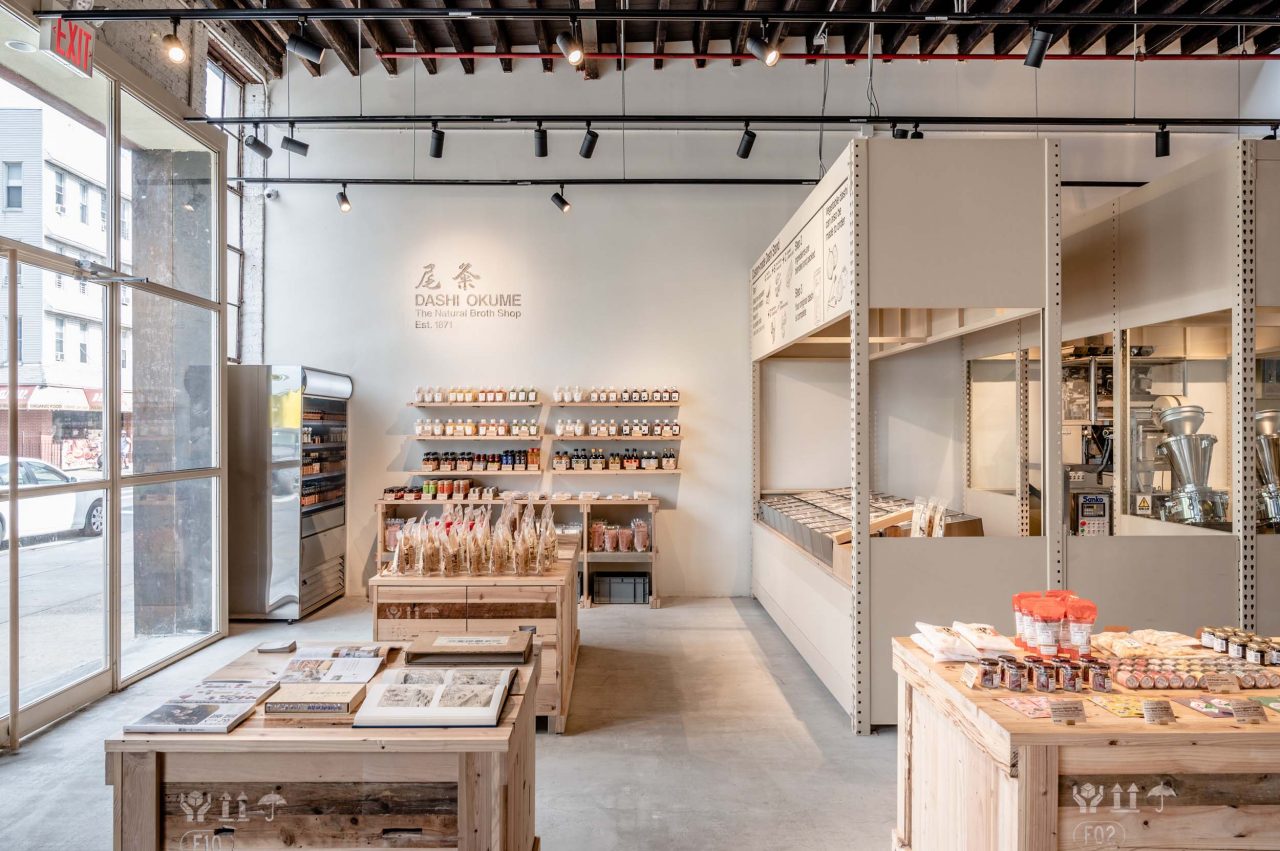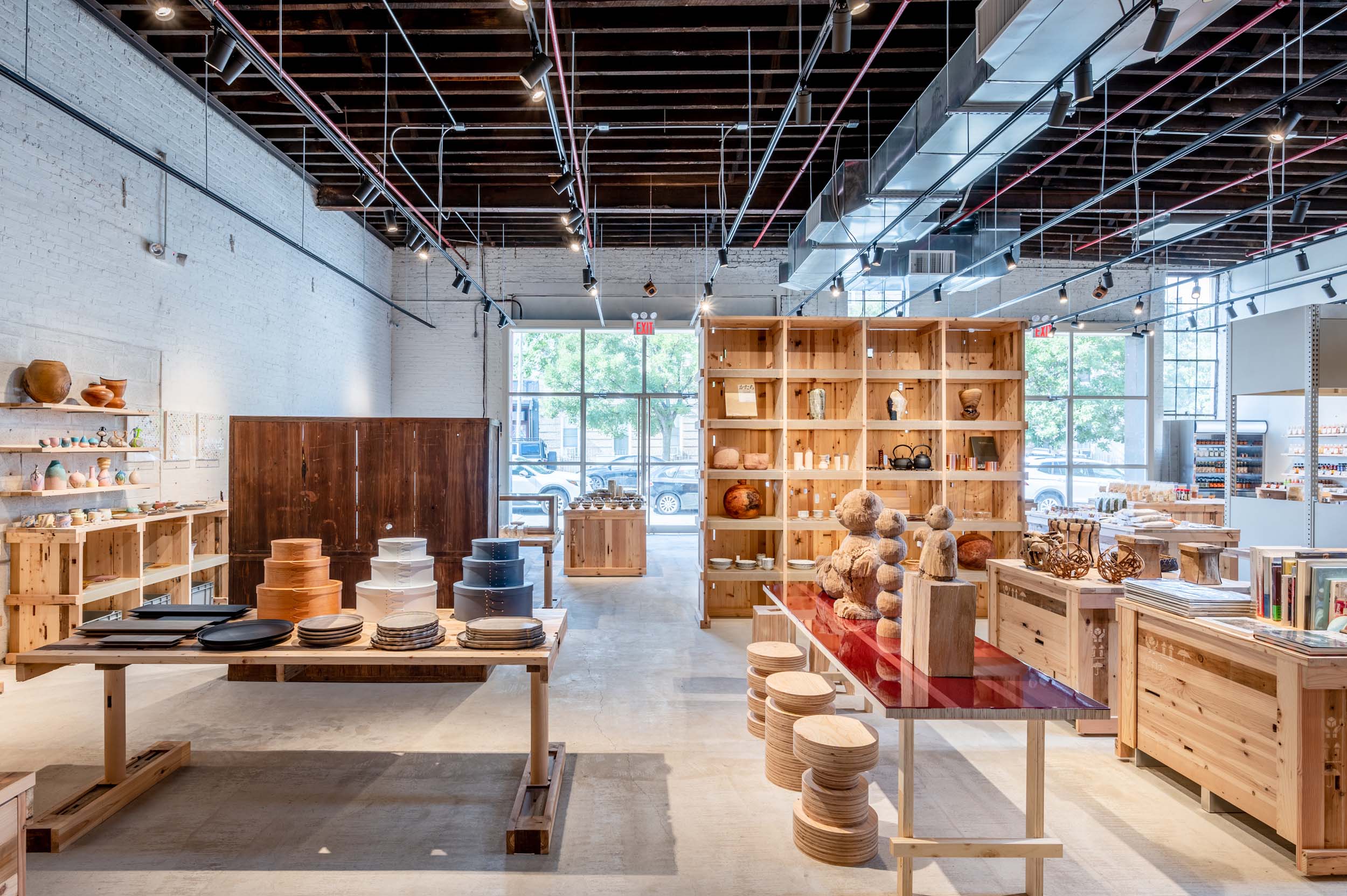When Dashi Okume opened in Tokyo’s Tsukiji Fish Market in 1871, across the planet the New York neighborhood of Greenpoint was experiencing an industrial boom. The next year, Eberhard Faber would move his pencil-making factory there after a fire in his Manhattan facility, and by 1875 the area was home to 50 oil refineries. Today, the area, served by the crosstown G subway and a ferry stop, is a hipster haven, so the locally preferred petroleum product is not gasoline but vinyl records.
Just west of the main drag of Manhatttan Avenue, a block where the building stock flips from three-story apartment stacks to commercial sheds, is the perfect spot for 50 Norman, an outpost that hosts the New York debut of three businesses offering high-end Japanese home goods, culinary items, and cuisine: Cibone, Dashi Okume, and House Brooklyn, respectively.
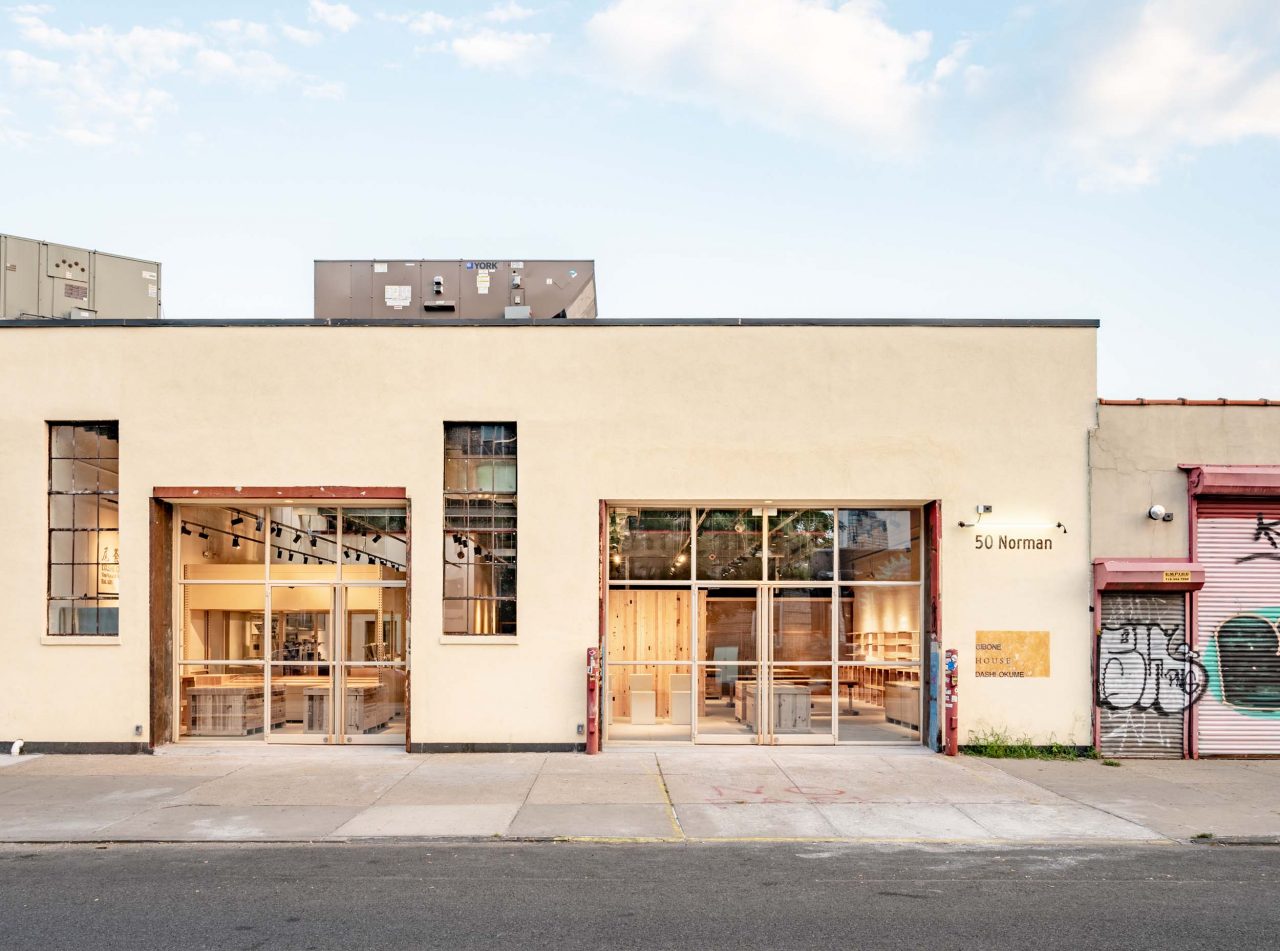
You wouldn’t know it from the street, as the 3,500-square-foot building, formerly an auto repair shop, is discreet. It’s marked by a new coat of paint, a steel window and door system that replaces the roll-up doors, and a linear tube light set above graphics carved into the layered finishes of the facade.
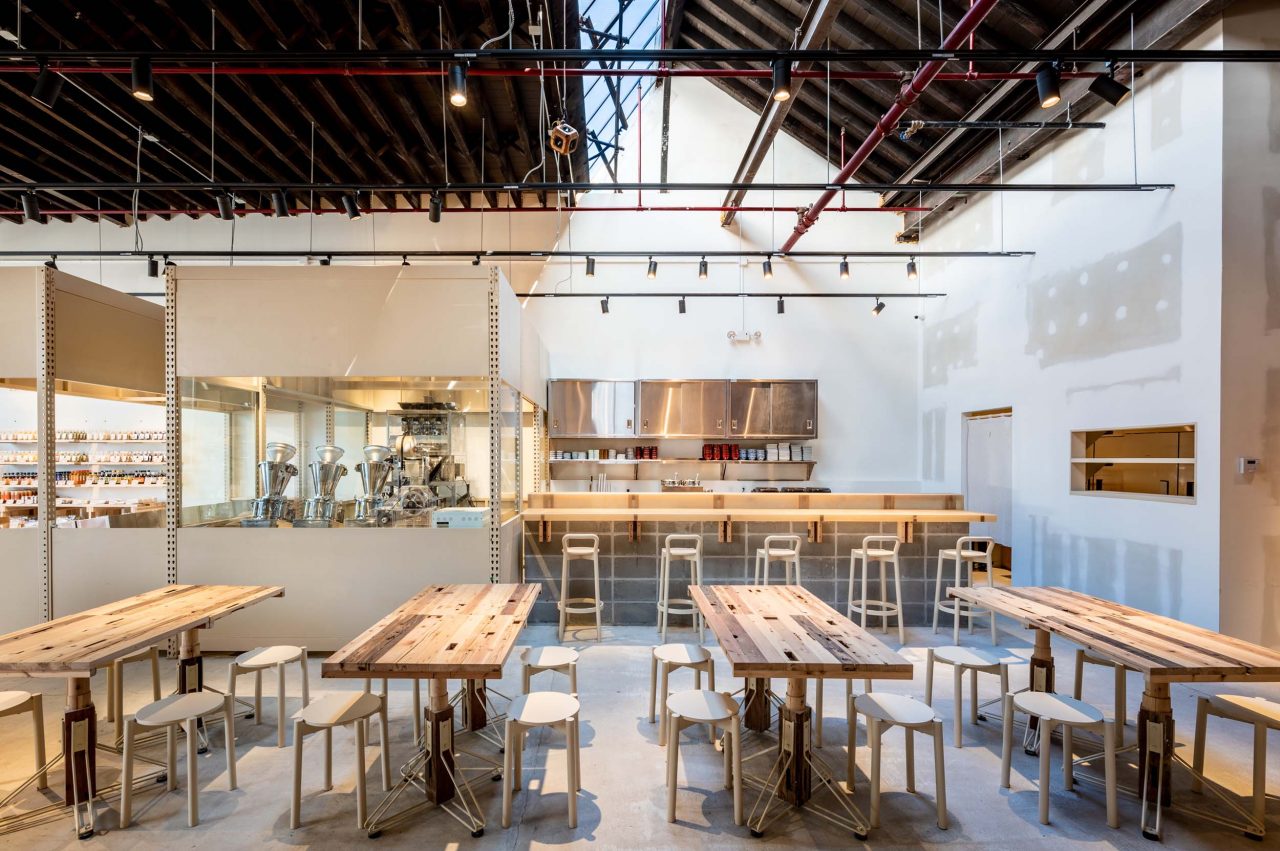
Inside, the space is airy and relaxed; its mini mall–like setup is defined by the furniture of each vendor. The ducting and linear lighting overhead are kept minimal, and the store names are inscribed in the walls, part of the graphics designed by Rikako Nagashima of village®. Dashi Okume’s broth emporium is up front, with an array of ingredients set within a kiosk. (Customers can make their own ratios for the stock mixes, following recommendations from the staff.) Behind, House Brooklyn, an eight-seat Japanese French restaurant, offers a nine-course omakase tasting menu. Cibone’s display tables fill the rest of the floor, showcasing lifestyle and artisanal goods like kettles, mugs, towels, tatami mats, and more.
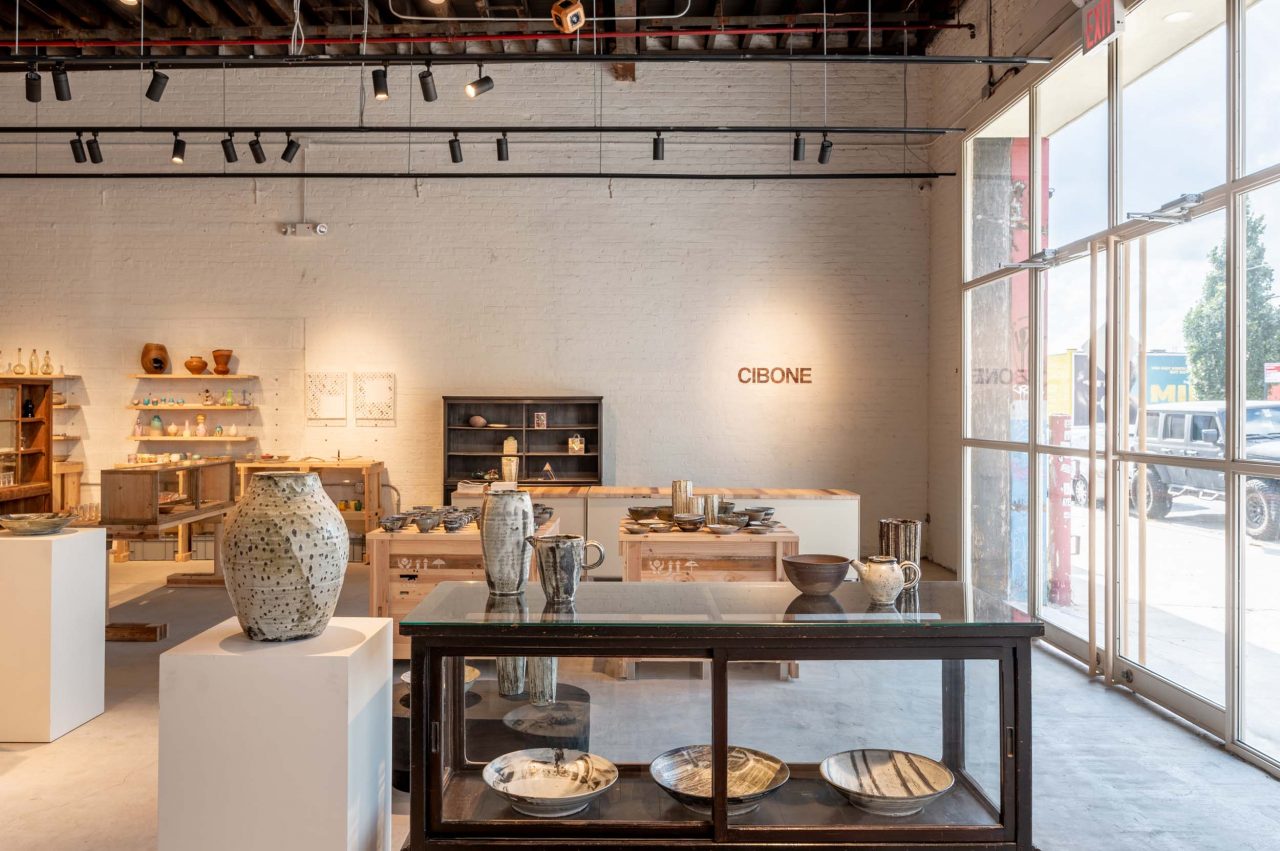
The design is by Jo Nagasaka, who leads the Tokyo-based Schemata Architects. 50 Norman is one of the company’s first built works in the U.S. (It also recently completed a ski chalet in Utah.) Schemata’s specialty is retail interiors, and the work—diligently chronicled on its website—is inventive, casual, and pleasantly junky. The furniture here was made from wood salvaged from a house in Kyoto by TANK, a skilled set of Japanese fabricators who often collaborate with Schemata. They parachuted into Brooklyn and worked with BLANK, a local team that specializes in Japanese interiors.
Nagasaka’s loose-fit approach for Schemata was explored in his 2016 book When B-Side Becomes A-Side, which showcased early projects like Sayama Flat (2008). The method values the unfinished, unpolished, and overlooked, and it slaps, even overseas: 50 Norman is a sleeper hit.
